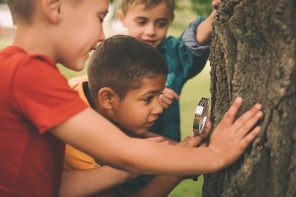The link between parental support and student achievement is so robust that school districts often have policies to encourage it, and various funding sources for schools have been tied to it, but there are some activities that move the needle on student achievement further than others.
While teacher skill and communication is an important ingredient for student achievement, there are several other influential factors outside of school that play a role in student success. In fact, research shows that supportive behavior from parents or guardians helps tremendously.
We know that volunteering in the classroom and chaperoning field trips are great ways to show an interest in your child’s education, however, the following four activities are most impactful.
1. Parent Tutoring
A 2008 study found that training parents to teach their children to read was far more effective than either teaching parents to listen to their children read aloud or having parents read aloud to their children.
Another study showed similar results for every content area and age level. Parent tutoring increased student achievement on both criterion and norm-referenced tests, no matter how long the tutoring sessions were or what kind of instruction or modeling was provided to the parents.
2. Supporting Homework
The effect of parent involvement in homework has been more mixed. One research report analyzing this topic found a strong link between increased achievement on almost any measure when parents regulate homework time and help students when they struggle.
However, significant results were only found for elementary students and were not seen when parents simply monitored homework.
3. Communicating Expectations
The most generalizable impact has to do with parental expectations. Two reports from 2005 and 2009 looked at a variety of parent behaviors and found that parental expectations and parenting style were significant predictors of higher achievement in both elementary and middle school.
4. Academic Socialization
While most family engagement research cites significant results in elementary grades, academic socialization has significant correlations with higher student achievement in middle school. According to a 2009 study, academic socialization included parents’ expectations for academic achievement, fostering academic aspirations in children, discussing learning strategies, and planning for children’s academic future.
Putting it All Together
Woven through each of these parent behaviors is the importance of clear and consistent communication. Open lines of communication between parents and teachers are essential to student success. So often, parents receive a lot of handouts and emails only to file them away and forget about them. It’s important for parents to review what teachers send home and ask clarifying questions when needed.
Hilary Scharton is the vice president of K-12 Product Strategy for Canvas (the learning software used by thousands of teachers/schools nationwide.) She’s also a former educator.





